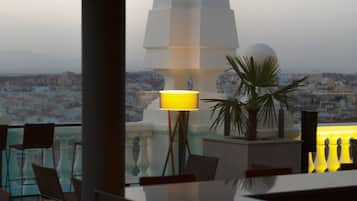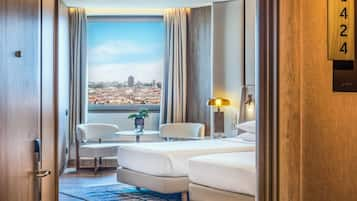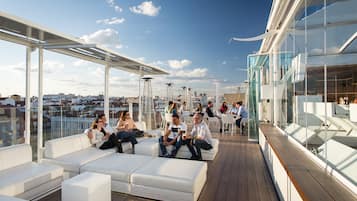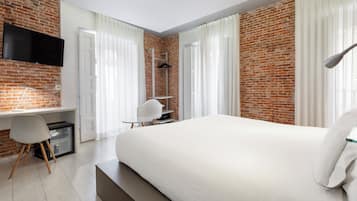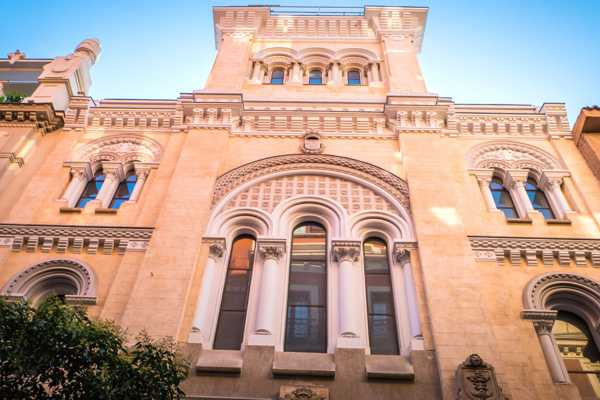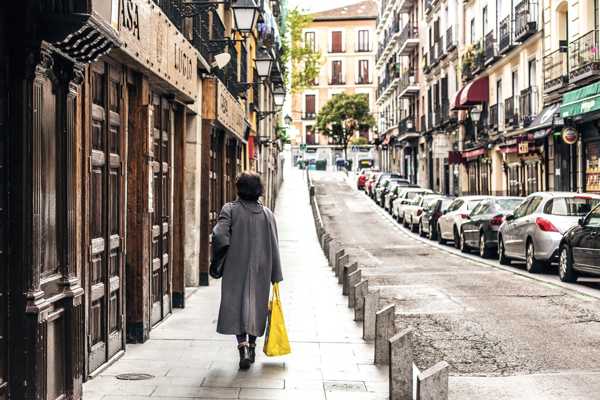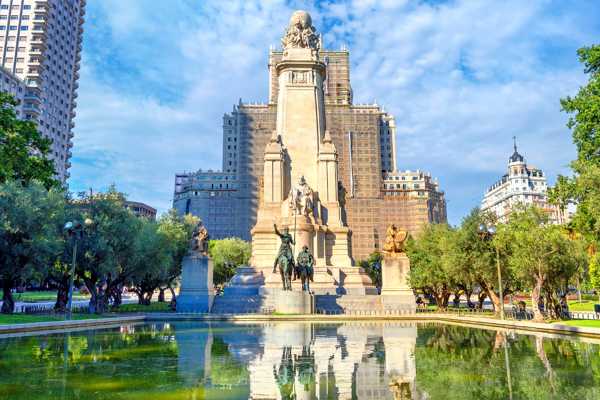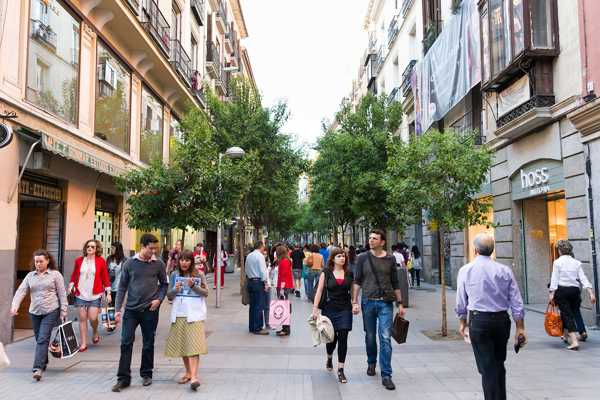Barajas in Madrid is a suburban district that offers an 18th-century public garden along with historic sites, parks, leisure areas, art installations and lots of low-key neighbourhood pubs. It's a region that's popular with people who like to get outdoors, whether it's for cycling, canoeing, kayaking or golfing. This neighbourhood offers lots of green space and leisure areas with sculptures, scenic olive groves and plenty of places to enjoy a quiet glass of wine and beer, along with a vibrant hotel bar scene.
Barajas is also a widely visited area because it's where the Madrid international airport is located. This places it within easy reach of a wealth of museums, historic attractions, arts and culture, and everything else from outdoor adventures to royal palaces and cooking classes. A trip to Barajas puts you within easy reach of just about anything you want to do.
Barajas in Madrid - one of the highlights of 10 Most Popular Neighbourhoods in Madrid (Read all about Madrid here)
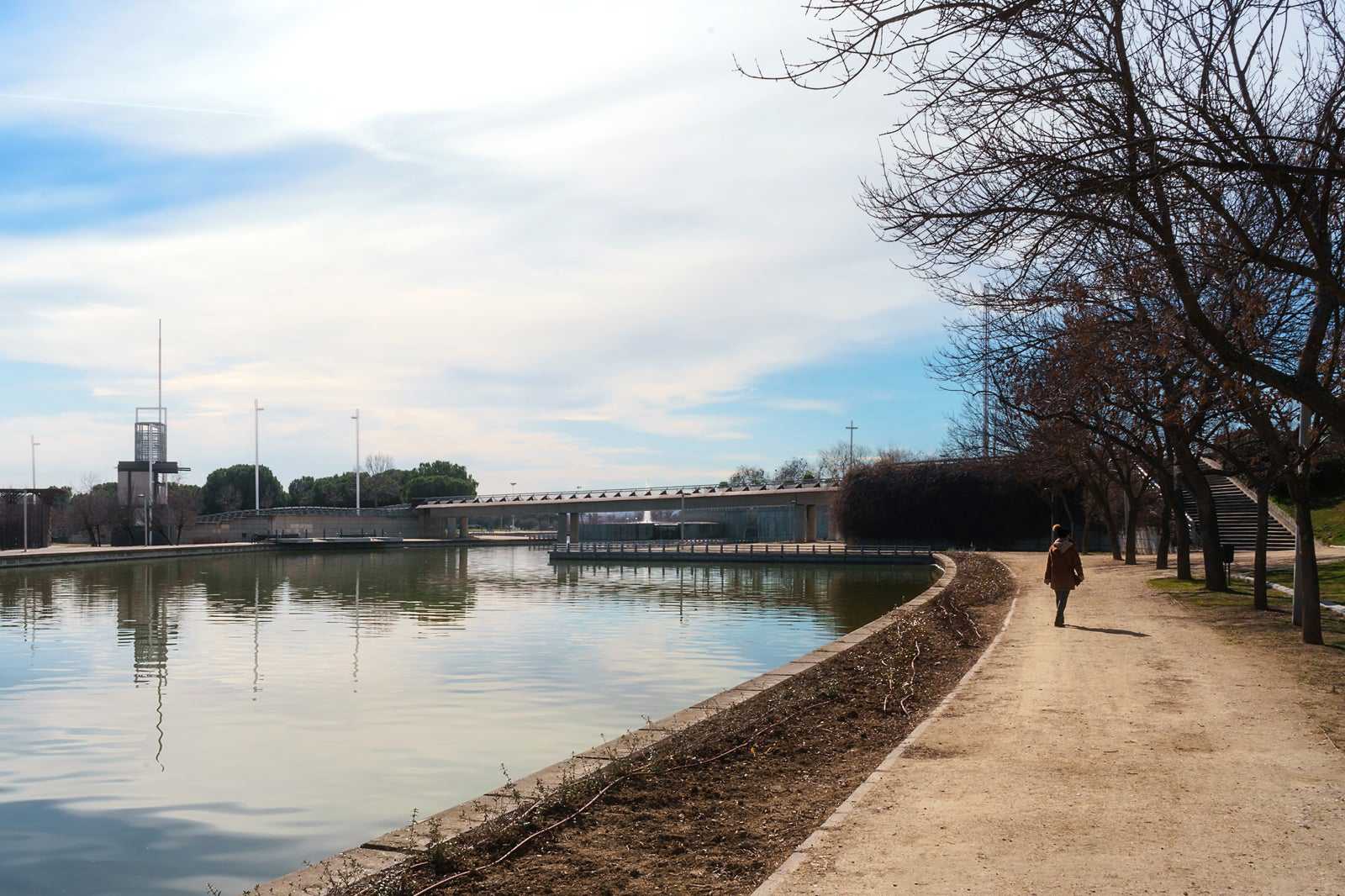
What are the highlights of Barajas in Madrid?
Highlights of Barajas in Madrid include 2 large parks: the Parque de El Capricho and Juan Carlos I Park. Parque de El Capricho offers an elegant, vast landscaped garden with a boating lake that's popular among canoers and kayakers, as well as endless rows of colourful flowers and paths for walking and cycling. At Juan Carlos I Park, you'll find acres of green space dotted with public art installations and sculptures, and you can also take a serene train ride. You can visit historic sites like La Alameda Castle, the Temple of Bacchus and the Palace of the Dukes of Osuna.
More unusual attractions include Hangar 52 Revolution, Donut Rojo, the Casino de Baile de El Capricho and Espacio 5.1. Each of these sites offers its own take on art and exhibits that will amuse and thrill. Not far away, you can tour Santiago Bernabéu Stadium and learn about Madrid's football legacy.
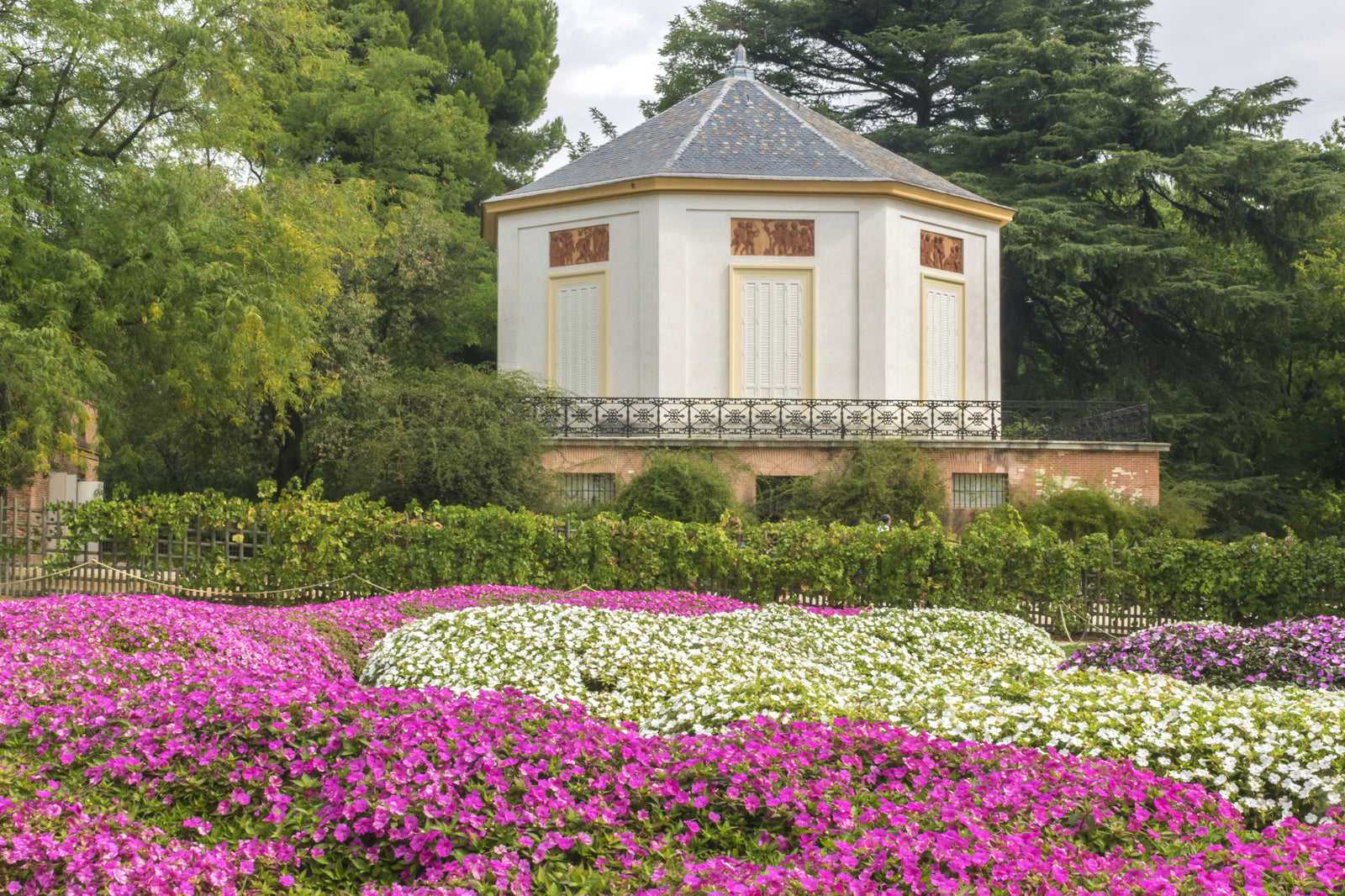
A brief history of Barajas in Madrid
The history of Barajas in Madrid is tied to the establishment of Adolfo Suárez Madrid-Barajas Airport, Madrid's international airport, which makes this a prime visitor location. Before the airport existed, Barajas was a quiet suburban municipality called Villa de Barajas. The airport was constructed in 1927 and opened in 1931. It was still another 2 years before regular commercial operations began. In 1949, Barajas became a neighbourhood of Madrid.
By the 1950s, the airport had grown from a small terminal capable of supporting 30,000 passengers per year to a much larger facility supporting more than 500,000 passengers with international flights. In 1982, the FIFA World Cup brought expansion and modernisation to the airport, and expansion continued through the 1990s. Additional terminals were added, and the suburb grew alongside the airport. Today Barajas is a destination known for its parks, pubs and leisure spaces.
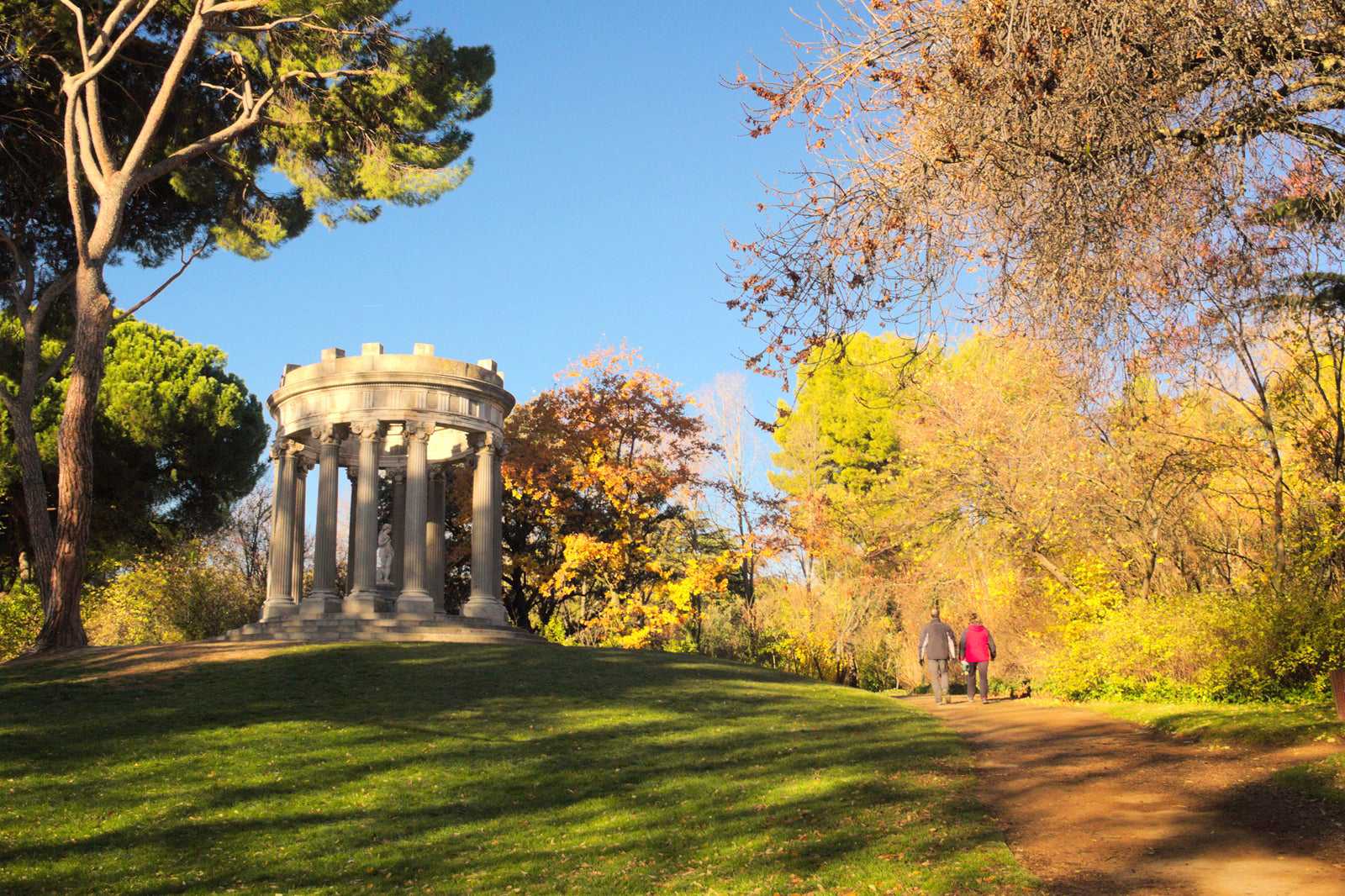
What else is good to know about Barajas in Madrid?
Though Barajas in Madrid is a popular destination due to the presence of the airport, it's not known for a wealth of attractions. Though it's a fine place to set up a base of operations for your holiday and offers easy access to many surrounding communities via outstanding bus, train, taxi, rideshare and bicycle hire services, it's more a place you come to relax and get away from the hustle and bustle. If you're looking for local bars and pubs to relax at with good local food and good drinks, this is a place to visit. If you want to go canoeing on a serene city park lake, it's also a good option.
Most areas in Barajas, and indeed the entirety of the airport, are disability accessible. If you need information about accommodation, contact individual places you will be visiting in advance.
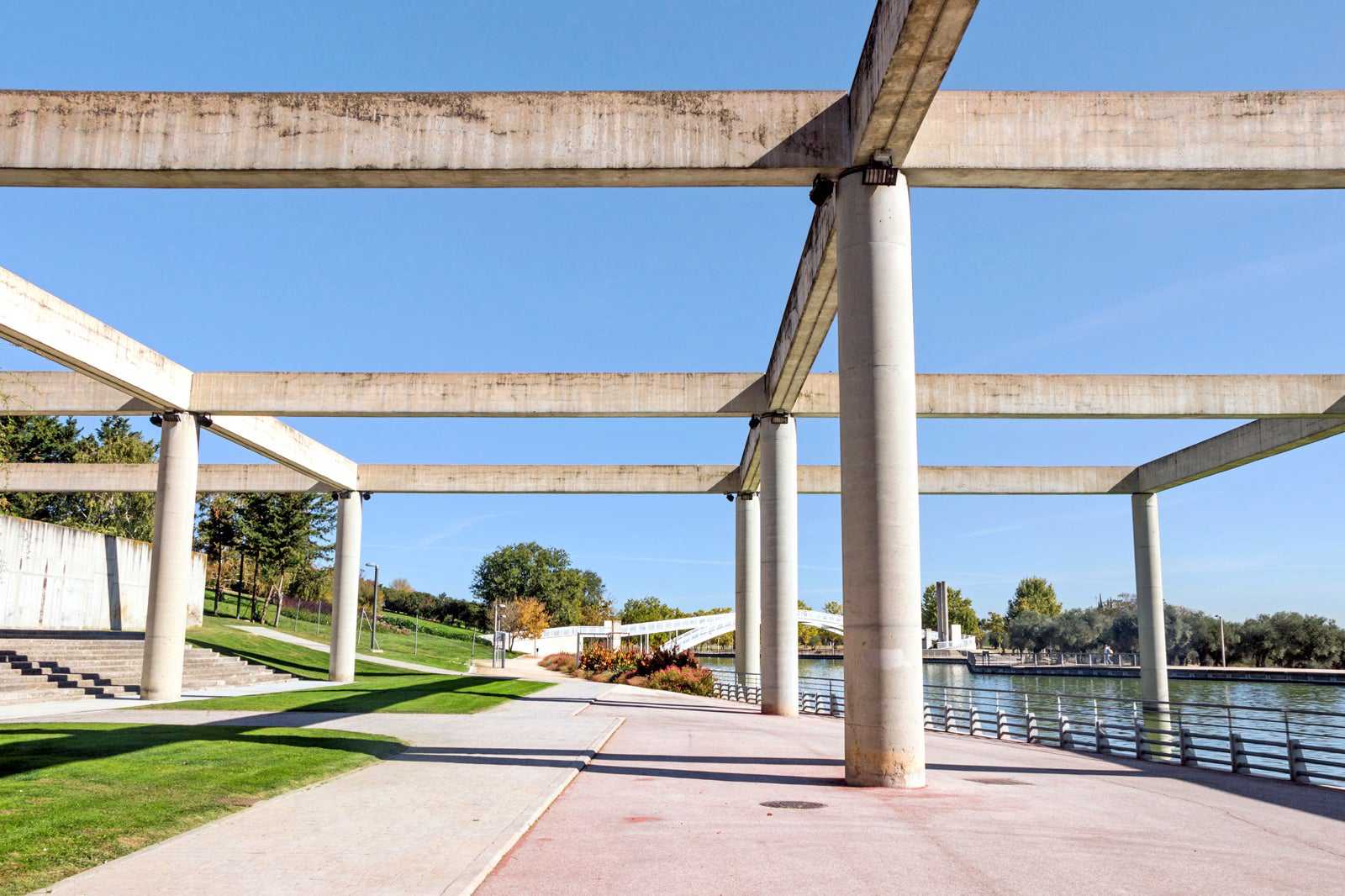
Barajas in Madrid
Konum: Madrid, Spain

